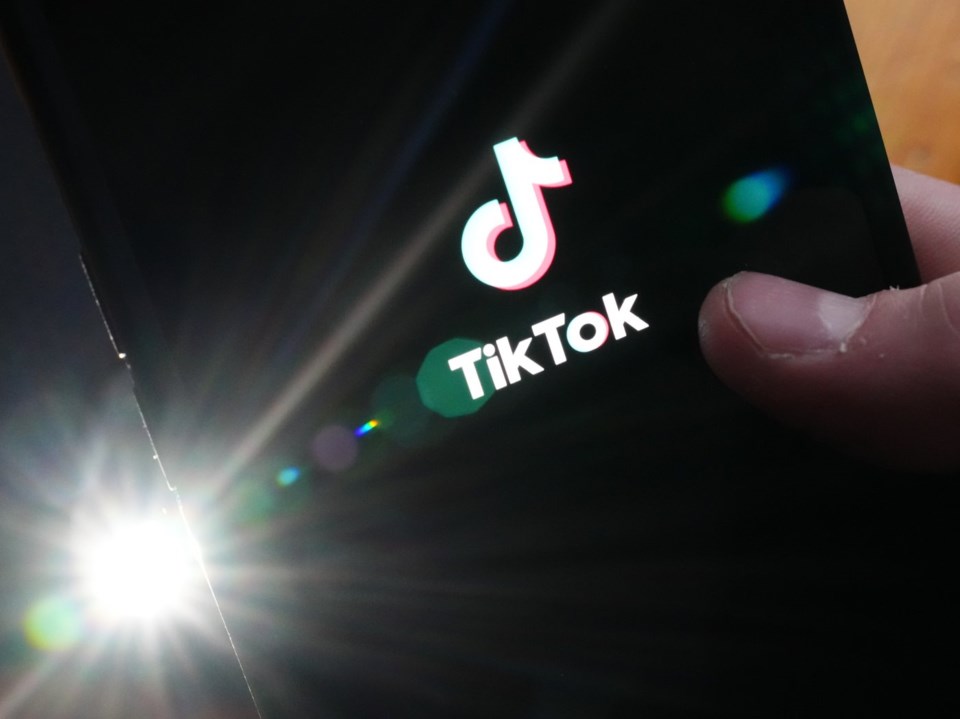TORONTO ‚Äî By ordering TikTok to shut down its 91‘≠¥¥ operations but not banning the app, digital media experts say the federal government is sending mixed messages that make it too hard for the average user to decide whether they should remain on the platform.
They say the government taking serious action against TikTok but not addressing access to its top product creates confusion for people just trying to decide whether Ottawa's move should warrant them to log off the app.
"It's a very mixed message ... to say we see some trouble here but you guys do whatever you want," said Richard Lachman, an associate professor at Toronto Metropolitan University's Radio and Television Arts School of Media.
Industry Minister François-Philippe Champagne's late Thursday dissolution request to TikTok and Chinese parent company ByteDance stemmed from information uncovered during a national security review and advice it received from the intelligence community and government partners.
Champagne has not provided details around what exactly was uncovered that prompted the government to take action against TikTok.
"They essentially said nothing," said Brett Caraway, a professor of media economics at the University of Toronto.
"They just said there's some concerns that were raised within the 91‘≠¥¥ intelligence community and maybe some external partners outside of Canada, but if I don't know what the nature of those concerns are, then nothing there is actionable for me."
TikTok was banned from the government's mobile devices in February 2023 amid an investigation into the company by federal and provincial privacy commissioners.
Lawmakers and security experts in other countries have feared TikTok's Chinese parent ByteDance could be compelled to assist the company's home country with intelligence gathering, putting other nations and their citizens at risk.
TikTok has long fought any notions that it would conduct intelligence gathering on China's behalf and said Wednesday that it will challenge Champagne's order because the demand would mean the closure of TikTok's 91‘≠¥¥ offices and the end of hundreds of jobs.
The order, however, does not block access to TikTok for 91‘≠¥¥ users nor their ability to post content on the platform.
"I don't understand why on the one hand they say that this app is a risk to national security, but they still allow 91‘≠¥¥s to use it," said Philip Mai, co-director of Toronto Metropolitan University's Social Media Lab.
Without knowing more about what worried the government, he said 91‘≠¥¥s must treat TikTok use as a personal choice.
That was exactly what the government advised though it hinted people shouldn't be complacent about online safety either.
Champagne urged 91‘≠¥¥s to "adopt good cybersecurity practices and assess the possible risks of using social media platforms and applications, including how their information is likely to be protected, managed, used and shared by foreign actors, as well as to be aware of which country‚Äôs laws apply."
Heeding Champagne's advice is no easy task, Lachman said.
"Individuals aren't experts in the privacy implications of any particular app," he said.
"It is the kind of thing we need a government to step up and say if there is a real cause for concern and here's what they are or here's the actions we've taken."
In the absence of more information, Lachman said all people can do is wait to see if the government eventually says more.
"It's never satisfying to say we have to wait and see, but this does feel like one of those cases," he said.
"My kids are on TikTok, but I'm not giving them some other advice than I would have yesterday, which is think about the use of these apps, but think about them in general, not TikTok in particular."
his report by The 91‘≠¥¥ Press was first published Nov. 7, 2024.
Tara Deschamps, The 91‘≠¥¥ Press



